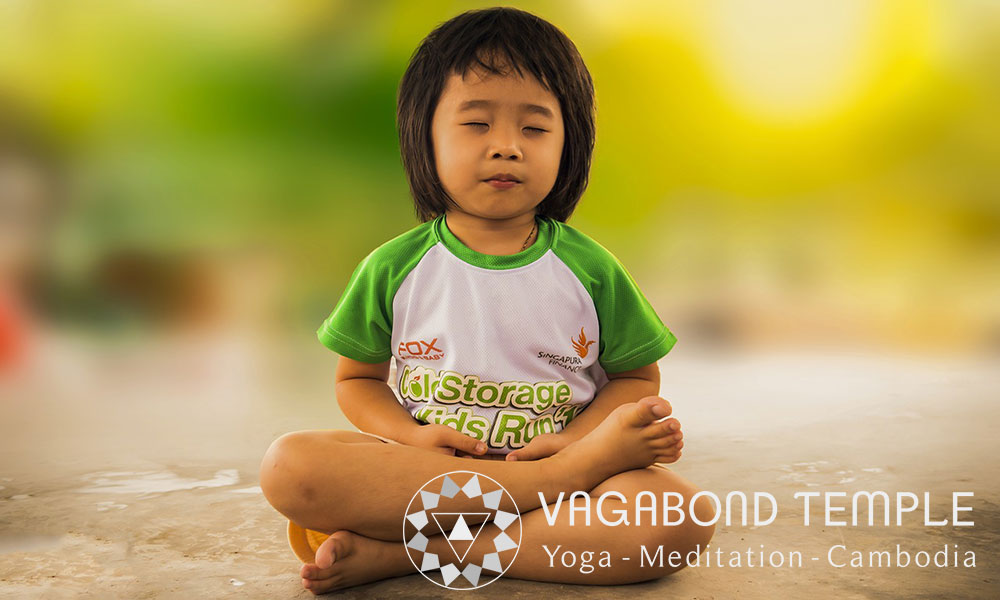Meditation: Why Bother?

Sitting for an extended period of time, doing nothing other than focusing your breath or another object, may seem like an unusual thing to do. Many of us have limited free time, so surely it would be better to use it for something more productive or entertaining? Surely sitting in silence is going to be enormously boring compared to watching your favourite TV show? In fact meditation may seem even more boring than watching paint dry – because there is not even any paint to watch!
Actually it is worse than boring, it is incredibly difficult! Anybody who has tried to meditate will know precisely how challenging it can be. Try the apparently simple task of focusing on one object and you will quickly see how little control you have over your own mind. You may experience significant frustration and bodily discomfort, even after a few minutes. This is why, in many spiritual traditions, meditation is said to be the hardest of all practices.
So why bother to practice meditation at all?
In one word: control. Meditation will allow us to have control of the most powerful tool we have, the mind. Our most powerful tool can also be the most dangerous one: if our minds are not under our control we run the risk of confusion, depression and poor decision making, leading to a never-ending cycle of unhappiness. Since all that we experience is experienced through the mind, bringing it under our control is really the only way to reach an optimal state of being where we are free from the discomforts of everyday life.
Many people think that meditation is the process of thinking about nothing, and that if the mind is full of thoughts then they are simply not “good enough” at it. This is not the case: the mind WILL wander, that is its nature. The process of meditation is simply to be aware of the thoughts that appear and return to the object of meditation. In this way meditation is putting our mind under the microscope: how the mind acts during meditation is a mirror of how it acts in real life. If we find ourselves becoming frustrated in meditation this may indicate that we are carrying anger. If we find our mind filled with doubts this can show we should take steps to increase our confidence. If we are distracted by daydreams and fantasies it may suggest a tendency to not live in the present.
Often our minds get us into trouble. This is not to say that external events are not significant – often life throws up incredibly difficult situations. Imagine your partner cheats on you. This is going to hurt, like being shot in the chest with an arrow. The correct response would be to calmly remove the arrow, but many of us would immediately grab a whole bucket full of fresh arrows and start mindlessly plunging them into our chests:
“I’m not good enough!”, “People always cheat on me me!”, “If only I did X?”, “How can I have been so stupid” etc. the list is endless.
As well as indulging in self torture, we may develop the tendency to see ourselves as passive victims of circumstance, feeling powerless to deal with the difficult situations that arise in our lives. This “poor me” narrative is a major feature of many peoples’ lives and a massive barrier to growth. Of course this is not to say that people are to blame for their own suffering: traumatic life events do hurt us, many people have a very difficult childhood, and we do not live in a fair world (if such a thing were possible). However, with meditation, we can learn that, even in the most adverse of circumstances, we have a choice as to how we react.
Another unhelpful thought pattern is the idea that when we get “X” we will be happy: the X being anything from a new car, to a promotion, to a perfect partner. We all know somebody who appears to “have it all” but is constantly dissatisfied and always seeking more. The X could be something from the past: “If only X did not happen”; we can see clearly that this places an impossible condition on our happiness – so this line of thinking can only bring us pain, however tempting it may be to indulge in it.
For many of us, negative thinking has become such a strong habit that we no longer notice it, taking our gloomy predictions about future events and our limiting beliefs about ourselves to be objective reality rather than just ideas in our minds.
Breaking The Patterns
Meditation can reveal these types of unhelpful thinking patterns and allow us to put a stop to them. As well as using meditation sessions to bring us closer to our thoughts, we can practice it in our daily lives, becoming aware of thoughts and sensation as they happen – this type of meditative practice is often referred to as mindfulness. Meditation sessions facilitate mindfulness and vice versa: the two practices go hand-in-hand. When we are aware of our thoughts, there is less danger of us being carried away by them. The key thing that is revealed is that there IS a moment of choice, whatever the situation. We can choose to continue to react according to our old pattern, or we can let it go. This ability to reflect before further thought or action is actually unique to human beings (for this reason in Buddhism to be born as a human is seen as such great fortune).
This process of meditative reflection can be divided into two stages:
1) See What Happens
2) Non-Reaction
Stage 1 involves simply being aware of what comes up. For example, imagine a friend is rude to you. Do you feel anger? Self-doubt? Blame? Does one thought lead to a chain reaction of negative thoughts and emotions?
Stage 2 is about becoming an objective witness to whatever happens. This is best understood through metaphor, a good one being the “Watcher On The Hill”, observing the thoughts and emotions without judgement, not letting yourself get dragged away into more thinking, emotional responses, and actions. Another way to imagine this process is to see yourself as an actor in a film, as if whatever happens is happening to somebody else. Or we can imagine we are like a mirror: reflecting whatever happens without changing it or adding anything. If you make a mistake in life, simply notice it, there is no need for self-criticism -simply be aware of the mistake and the consequences. This will make it less likely that you repeat it.
If we practice this two stage process we will see ourselves and the world with far greater clarity. We will learn to identify the thinking patterns that do not serve us, learning to control our thoughts rather than letting them control us.
Going It Alone
If you meditate there is just you, nobody else. The thoughts you experience are yours and only you can choose to control them. Nobody else can decide your thoughts: not even the partner who left you, the boss who shouted at you, or your controlling parents. It may seem that another person can cause you to feel a certain way, but with regular meditative practice you will see that there is always a moment of choice before you react.
We may often to tell others to “take responsibility” but it not an easy thing to do, especially as most of us have had lifetime of following the same patterns and believing that external events are responsible for how we feel. However meditation gives us the power to really take control of our own lives, adopting a course of action that is most beneficial to us regardless of the situation.
The Obstacle Is The Path
In meditation as in daily life, the most painful situations can offer the best opportunities for growth. When a crisis occurs, the mind is flooded with painful thoughts and emotions. You may replay events over and over in your head, torturing yourself with regret and self-criticism or exhausting yourself with anger and hatred. Here arises a great opportunity to take control of the mind, choosing to stop the painful thought pattern or continue down this destructive path. We may find we are not so much a victim of people or events, but of our own unhelpful perceptions and reactions: “poor me” may be replaced with “ignorant me”, and there is hope for “ignorant me” because meditation will put an end to ignorance!
Complaining (either to others, or ourselves internally) is an instinctive reaction for many. It may certainly make us feel better in the short term. However if we are mindful of this complaining tendency we will see that most of the time it does not help at all with the situation. In many cases it makes it worse, as we give more power to whatever has happened, and fail to take ownership of the associated thoughts and feelings. Following an unpleasant event you may go for a walk or watch the sunset. What value is there of complaining here? It will simply ruin your experience. It is far better to let go of the painful emotions associated with the event, and then act from a position of calm.
Worth The Effort
So although meditation is extremely challenging, and may reveal aspects of our minds that we initially do not want to see, the end result is freedom. There is a reason why meditation is considered the most important practice in many spiritual traditions. The rewards that it brings are potentially far greater than the brief periods of joy you get from external objects and pleasant situations. If we truly control our own minds, we have nothing to fear.



